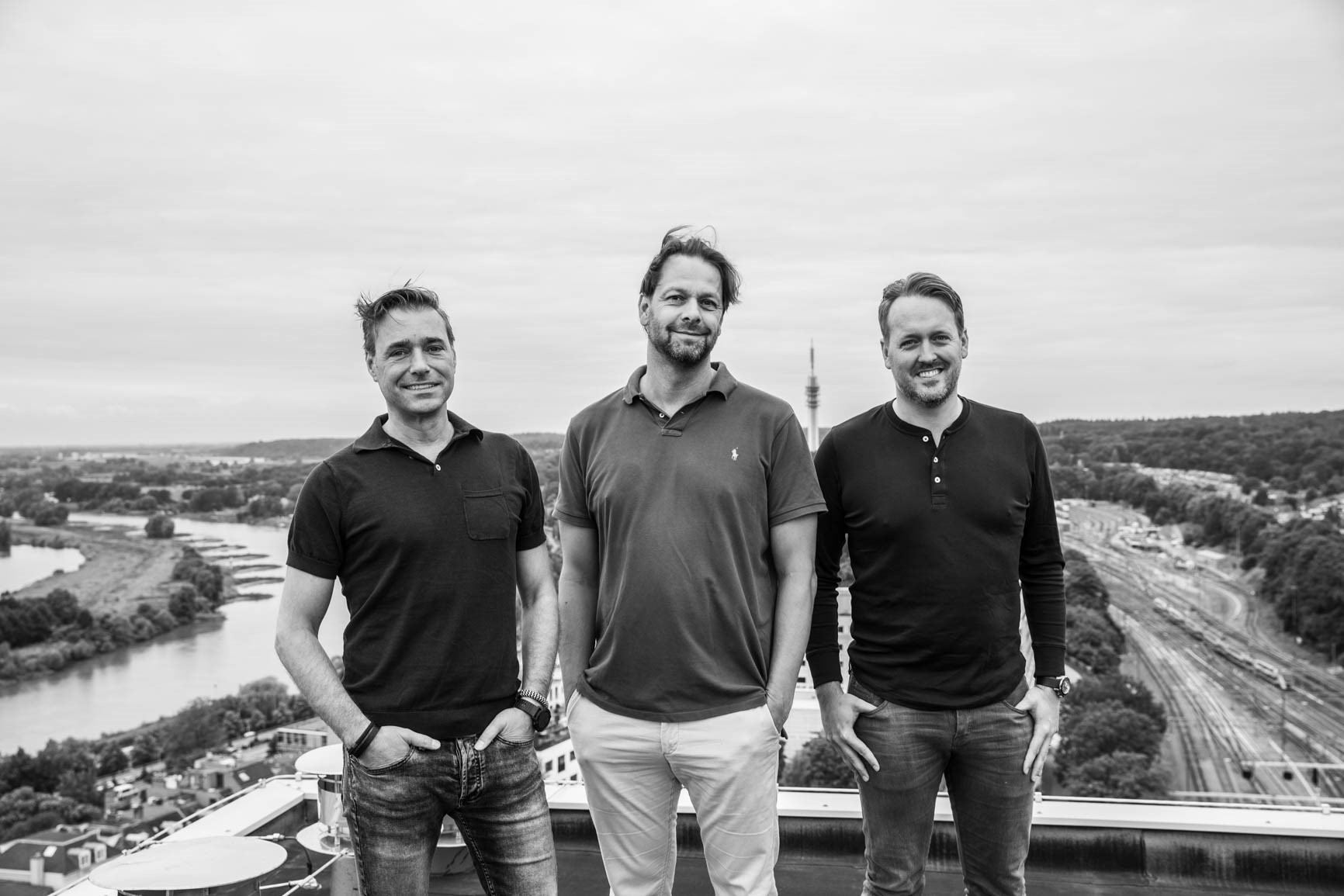by Oost NL
With help from the European programme Blockstart, OpenCommodities is investigating the extent to which a blockchain application contributes to the transparency, efficiency, and reliability of their platform OpenDairy. On this online marketplace, buyers and sellers of dairy ingredients can find each other without the intervention of traders. Students from Windesheim University of Applied Sciences are conducting a blockchain feasibility study for the Arnhem start-up. Martijn Goedhart, co-founder of the platform says, "I am impressed by the students and can highly recommend Blockstart. Without this programme, we would have to figure everything out ourselves and that takes a lot of time." Blockstart is intended for SMEs who want to find out whether blockchain technology provides solutions to their issues concerning processes, tracking and tracing, and invoicing.
Blockchain reduces risk of errors
In a transaction between producer and buyer of dairy ingredients, a lot of information goes back and forth. Goedhart reminds us, "Think of quality certificates and documents for shipping and payment. It is very important that all documents are reliable and up to date. Now the transfer is still done traditionally – by e-mail and sometimes by fax. Often, documents are hard to find, and it is unclear what the latest version of a document is. Blockchain makes it easy to find the right information quickly. It provides insight and everyone relies on the same information, which reduces the risk of errors." A blockchain is a database in which multiple transactions are stored in blocks. New blocks can only be added at the end of the chain, and each block that is added contains a serial number of the previous block to connect it to the chain. All information stored in the blocks cannot be changed once added to the chain.
One version of the truth
The cooperation with a group of students from Windesheim University of Applied Sciences in Zwolle is going 'very well', says Goedhart. "They work in a very structured way. They interview all sorts of parties and map out how the process is going and then apply their knowledge to it." The students focus on two links in the chain: logistics and financing. "In logistics, it's mainly about bundling information, in one place. One version of the truth. In finance, you have to think about the possibility of using crypto currencies." Goedhart sees many advantages of blockchain: "Blockchain makes a lot of data available. You can see the CO2 emissions of a container transported from Rotterdam to Singapore. Then you know how much you need to compensate. We would like to make the CO2 emissions per transport option clear, and the footprint of an entire transaction. Blockchain is great for that.”
Origins of OpenDairy
Goedhart knows all the ins and outs of the dairy industry and saw room for improvement. That's why, together with Henk de Weijer and Hans Caspers, he developed OpenDairy in 2021. Goedhart explains what the usual course of action was: "As a rule, dairy processors have a surplus of about 10%. That milk cannot be 'processed' into regular dairy products and is processed into long-life products, milk powder and butter. The sales process for those products is labour and capital intensive. Among other things, you must arrange the logistics. To be rid of this worry, products often sell their residual flow to traders, who then sell the milk powder to customers all over the world.” However, this has disadvantages: "Producers no longer know where their dairy ends up, it becomes opaque. For consumers, too. They want to know more often where the product comes from, how sustainably it was produced and what the CO2 emissions of transport are. And traders cost a lot of money. With OpenDairy, producers sell ingredients themselves without the costs and hassle. Financing and logistics are handled by professionals. Through our platform, producers get a better price, and so do farmers. That has already been proven.”
Open invitation
OpenDairy, as its name suggests, is an open platform. That means that there are no restrictions in terms of suppliers, buyers, logistics partners or banks. Goedhart invites other companies to join – "Anyone who sees opportunities with OpenDairy: feel free to knock on our door!"
Blockstart is a project within the INTERREG North-West Europe programme. INTERREG North-West Europe falls under the European Cohesion Policy and is financed by the European Regional Development Fund (ERDF). The provinces Gelderland and Overijssel are co-financing the project. Blockstart supports SMEs with their digitisation challenges. Oost NL executes the programme in the east of the Netherlands.

